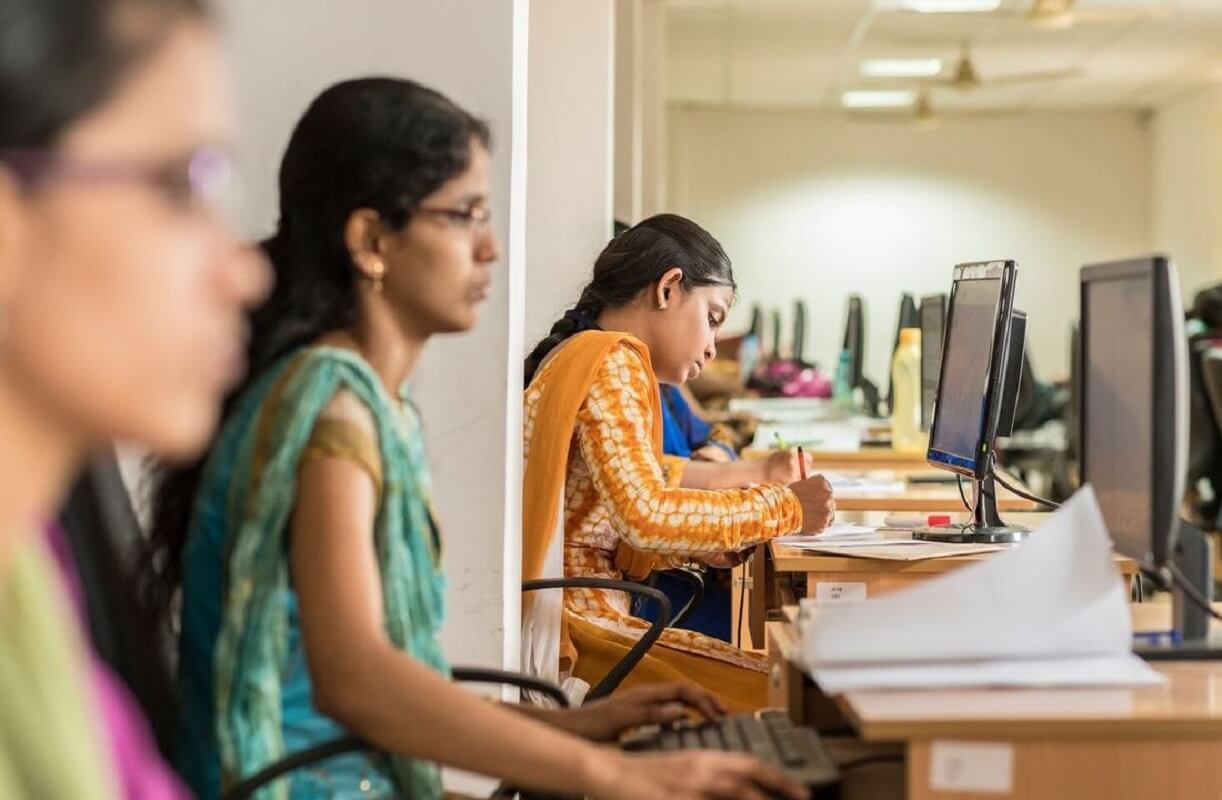COVID-19 Impacts on Female Employment in Bangladesh: An Impediment to Economic Development
Dola Das | 30 May 2022
The COVID-19 outbreak has imposed an unprecedented unemployment crisis among women throughout the country. It raised an extra burden on the livelihood and income of the female population. Here, females are more likely to be involved in the workforce, such as garment industry, service sector, accommodation, SMEs, and other informal sectors that have worsened immensely due to this pandemic.
The brunt of the COVID-19 outbreak hit the female employees to a greater degree than males in Bangladesh as they are mainly involved in the low wage informal labour market. According to the Labour Force Survey (2020), female engagement is notably high in the informal employment sector in Bangladesh, constituting about 90%, while only 10% of female workers are involved in formal sectors. The sufferings of the female worker in the labour market have extended in the form of losing jobs, unpaid work, overtime working, and in all other possible ways. Besides violence, harassment and the risk to security and safety have drawn a major worry among the female workers.
Readymade garment (RMG) is considered the pillar of Bangladesh’s economy, which shares about 20% of the country’s GDP and provides employment to approximately 4.2 million people (DIFE Report). It is the largest workplace of female employees among all the sectors. As women constitute about 80% of the RMG sector workforce, they are the worst affected by the pandemic’s impact in this sector. Due to this pandemic, an estimated 50000 garment workers have lost their jobs, and the percentage of female workers is around 70% (According to Bangladesh National Garments Workers Employees League).
There are about 10.5 million people who are employed as domestic workers, with an estimated 90% of female workers. Unfortunately, many of them are children. Since the pandemic started and the country went under lockdown, the domestic workers became the first victims and were thrown away from their jobs. Approximately 54% of female domestic workers lost their jobs from March to September 2020 (CPD Survey). According to Oxfam’s Securing Rights assessment, about 90% of female domestic workers have experienced domination and abuse by their family members as they are not providing money to the family. This assessment also mentioned that 95% of female domestic workers were not paid off their salaries for the first 4-5 months of the pandemic.
According to the BRAC Institute of Governance and Development (BIGD), one-third of employed young females have lost their jobs as of January 2021, which is roughly three times higher for young females (29%) in contrast to young males (11%). Even after finding a new job later, the income recovery rate has decreased two times higher for female youths (21%) compared to male youths (10%).
SMEs play a crucial role in the economy, contributing about 25% of the country’s GDP. Covid-19 has a harsh impact on SMEs like all other economic sectors. A survey conducted by the Centre for Policy Dialogue (CPD) finds that about 41% of female-led enterprises had to close down their business, 7% of female-led SMEs had to shrink the size of their business, and 3% of enterprises shifted their business to a smaller place than before. Besides, many female workers employed in the SME sectors have lost their jobs after the start of the pandemic.
The banking sector also experienced the negative impact of COVID-19 on female employment. According to Bangladesh Bank Report, the ratio of female employees in the banking sector has also dropped from 18.7% (2020) to 15.8% in the first half of 2021.
Female participation in the labour market plays a significant role in the economic development of a country. Though females constitute more than half of Bangladesh’s population, their participation in the labour force is very low compared to men (84% for men while it is only 36% for women in 2020). The covid-19 pandemic has widened the gender inequality in the labour market, and it has adversely affected the total economic development of the country. The fall of female employment during the pandemic period had negative impacts on poverty reduction, gender equality, productivity growth and SDGs, which affected the overall economic development in Bangladesh. If the female labour force participation elevates to the level of male participation, GDP per capita will increase by 0.5-0.7% on an average in Bangladesh, which can be an appreciable gain for the country. As per the WEF Global Gender Gap Index 2021, Bangladesh has slipped 15 spots to rank 65th. The rank was 50th and 48th, respectively, in 2020 and 2018. The data indicates that the gender disparity has widened alarmingly in Bangladesh amid the pandemic period, which is considered a threat to achieving SDG goal-5.
After starting the vaccination program and relaxing lockdown, female employment and participation in the labour market have regained some of the lost ground. Yet, it is not up to the mark. It’s barely possible for the country to ensure economic development, keeping many women unemployed. In order to integrate more women into the labour force, sustainable and gender-responsive policies should be designed and implemented accordingly in the post COVID era. Budget allocation for the development of the female has to be enhanced. Proper education and IT training should be provided to upgrade their skills so that the females can engage themselves with the 4th industrial revolution. Government and other NGOs should provide low-interest credit to the female entrepreneurs for reinstating their businesses. The government should also provide subsidies to females in the agro-based sector. Proper implementation of stimulus packages and transparency in this regard need to be ensured. Moreover, creating job opportunities for females both in the formal and informal sectors can be a valuable measure for them to be economically empowered.
Dola Das, Research Intern, Centre for Governance Studies (CGS).
Views in this article are author’s own and do not necessarily reflect CGS policy.
